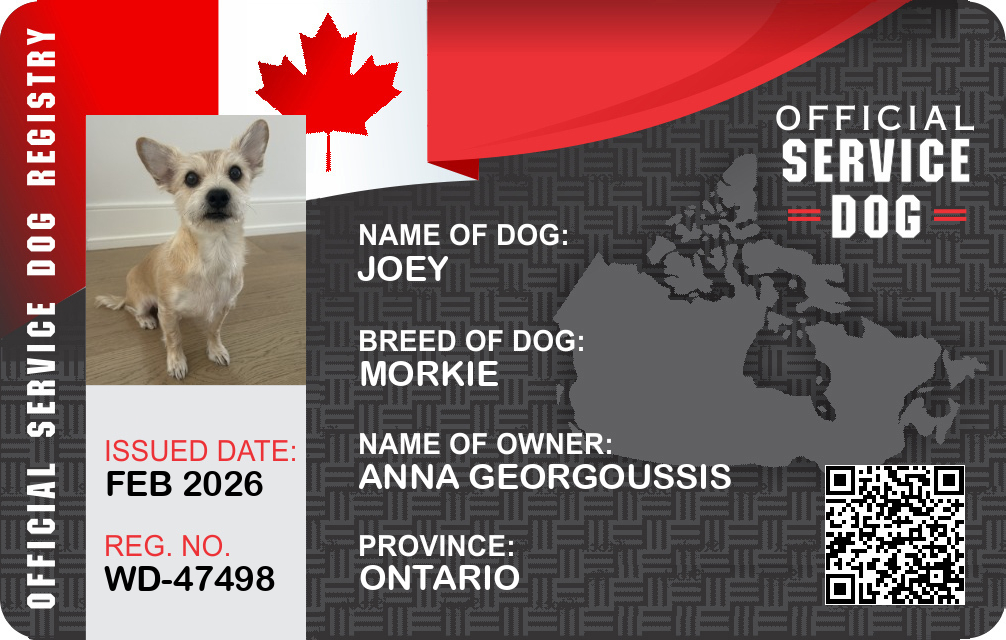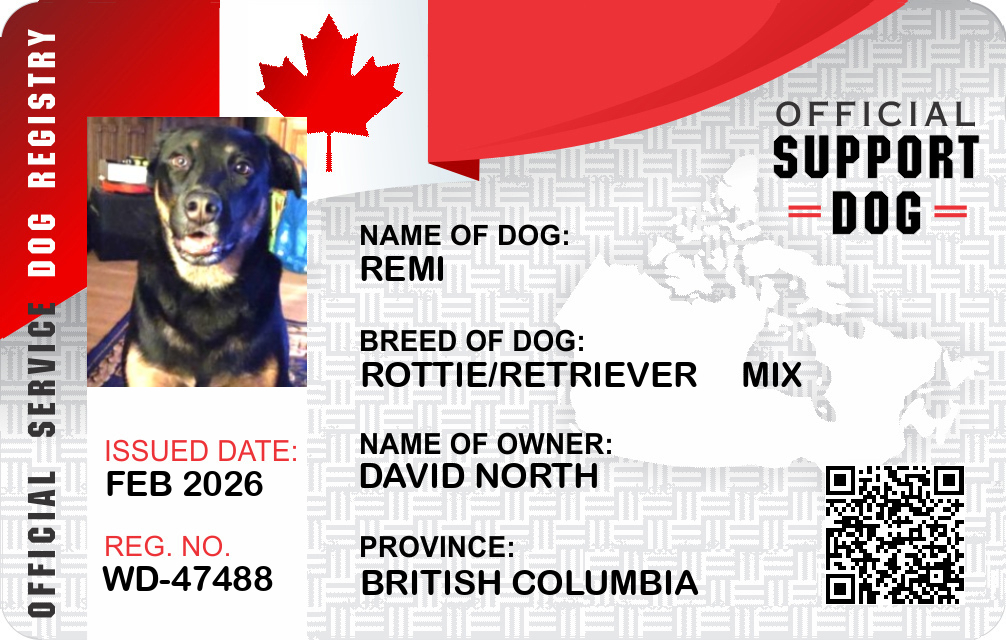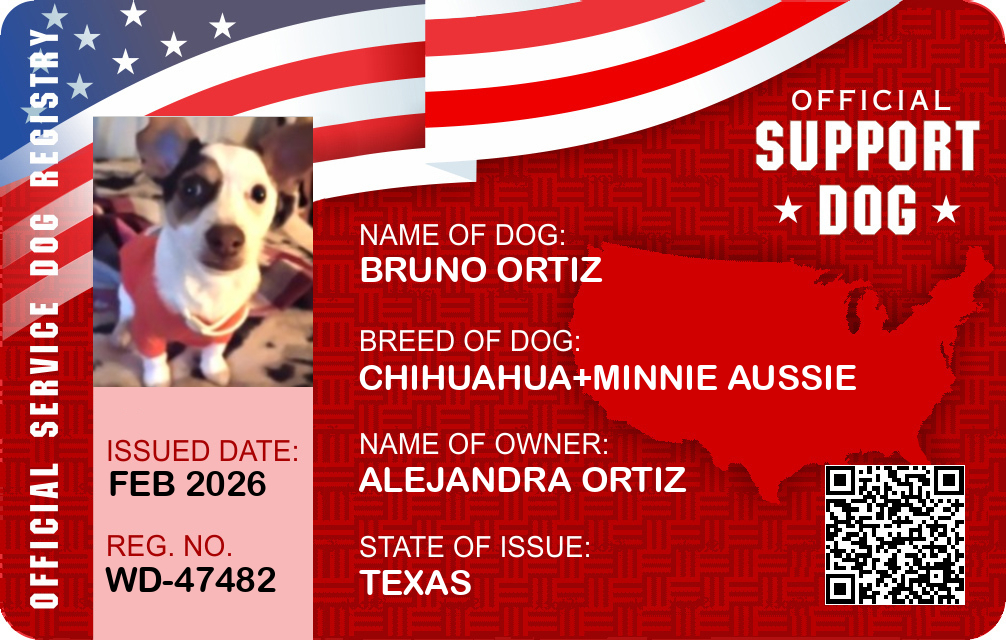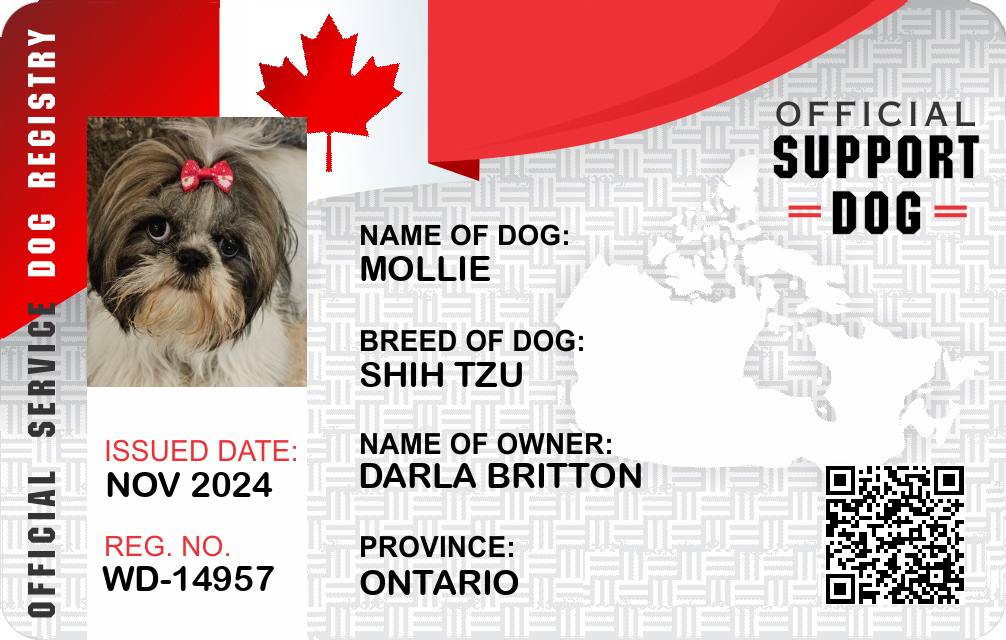Nevada Emotional Support Animal Laws
Get Your Documents
Example State Cards


Understanding the legal framework surrounding emotional support animals (ESA) is vital for owners and landlords in Nevada. This guide provides a comprehensive overview of the laws, requirements, and rights of ESA owners in the state, drawing from both federal legislation and Nevada-specific statutes.
Overview of ESA and Legal Definitions in Nevada
What is an Emotional Support Animal?
An Emotional Support Animal (ESA) is a companion animal that provides therapeutic benefit to individuals suffering from mental or emotional disorders. Unlike service animals, ESA do not require specific training to perform tasks that assist individuals with disabilities. Their mere presence alleviates symptoms of psychiatric conditions such as anxiety, depression, and PTSD, contributing significantly to the well-being of their handlers.
How ESA Differ from Service Animals
The distinction between ESA and service animals is a critical aspect of understanding their legal context. While service animals, defined primarily as dogs under the Americans with Disabilities Act (ADA), are trained to perform specific tasks for individuals with physical, sensory, psychiatric, intellectual, or other mental disabilities, ESA are not required to have such training. This differentiation impacts their accessibility rights: service animals enjoy broader public access protections compared to ESA, which are primarily covered under housing laws.
Key Federal Laws Affecting ESA (e.g., FHA, ACAA)
Federal laws provide a framework within which Nevada ESA laws operate:
- The Fair Housing Act (FHA) protects individuals requiring ESA by prohibiting discrimination in housing practices. Landlords must make reasonable accommodations for ESA owners, ensuring equal housing opportunities.
- The Air Carrier Access Act (ACAA) previously covered ESA but, following a 2021 amendment, now limits free access primarily to service animals, necessitating alternative provisions for ESA during air travel.
State-Specific ESA Laws in Nevada
Housing Rights and Responsibilities
In Nevada, the FHA is the primary legislation safeguarding ESA rights in housing. This act requires landlords to accommodate tenants with ESA, even in properties that restrict pets, provided the tenant presents a valid ESA letter. Landlords cannot impose pet fees or deposits for ESA; however, tenants are liable for any damage caused by their ESA.
Public Access and Accommodation
While ESA do not enjoy the same access rights as service animals in public spaces such as restaurants, businesses, or hotels, Nevada law aligns with federal guidelines by ensuring that ESA are recognized in housing scenarios. This means ESA are not guaranteed access to public venues unless explicitly allowed by the establishment’s policy.
Transportation and Travel Rules
Regarding public transportation, the ADA Title II and III address protections mainly for service animals, leaving ESA access up to policy discretion of individual transportation providers. While the ACAA no longer extends automatic air travel privileges to ESA, Nevada residents must now align with airline-specific policies, which might require booking in advance, paying a pet fee, or other accommodations.
Employment and Workplace Considerations
The ADA governs workplace accommodations for individuals with disabilities, including the presence of service animals but not ESA. In Nevada, employers are not legally obligated to accommodate ESA in the workplace, though some employers may choose to offer flexibility on a case-by-case basis. Clear communication and documentation are key if an ESA’s presence is requested as part of a reasonable accommodation process.
Documentation, Requirements, and Processes in Nevada
ESA Letters and Who Can Issue Them
ESA letters are crucial for validating the need for an emotional support animal in housing contexts. In Nevada, these letters must be issued by a licensed mental health professional, such as a psychologist, psychiatrist, or therapist, who confirms the individual’s need for the animal due to a mental health condition. Telehealth services can be legitimate sources for obtaining an ESA letter, provided they adhere to professional and ethical guidelines.
Registration, Certifications, and Common Misconceptions
Unlike service animals, ESA do not require certification or registration, despite the proliferation of online services claiming to offer official status documentation. In Nevada and elsewhere in the U.S., the ESA letter is the only recognized documentation necessary, eliminating the need for additional certifications.
Landlord, Business, and Provider Verification Rules
Landlords in Nevada can request verification of the ESA letter. However, they cannot ask for details about the applicant’s condition nor demand medical records. Businesses and service providers, unless offering housing, typically do not have obligations regarding ESA and hence are not required to verify ESA documentation.
Rights, Limitations, and Legal Risks
Rights ESA Owners Have in Nevada
Owners of ESA in Nevada have specific rights predominantly related to housing:
- Right to reside with their ESA in “no pets” housing under the FHA.
- Exemption from pet fees or deposits.
- Integral presence of an ESA as a part of reasonable accommodation for housing.
Limits on ESA Protections and Common Restrictions
The scope of ESA protections is largely limited to housing. ESA owners do not have:
- Automatic access to public amenities, workplaces, or transportation systems.
- Entitled privileges in restaurants, stores, hospitals, or airplanes (post-ACAA revisions).
Penalties for Fraud or Misrepresentation
Misrepresenting an ESA as a service animal is a serious offense both federally and in Nevada. Individuals caught falsifying ESA status can face fines and legal repercussions. The state supports efforts to curb ESA fraud, thereby preserving the integrity and purpose of genuine accommodations.
Practical Guidance for ESA Owners in Nevada
How to Qualify for an ESA Legitimately
To qualify for an ESA legitimately, Nevada residents should:
- Consult with a licensed mental health professional to assess the need for an ESA.
- Obtain an ESA letter from a qualified provider, ensuring it is up-to-date and meets all legal criteria.
How to Talk to Landlords, Airlines, and Employers
Effective communication is key:
- Landlords: Present your ESA letter and clarify any questions upfront. Emphasize the therapeutic need for the ESA and your willingness to comply with property policies.
- Airlines: Confirm specific policies in advance, as requirements may vary. Consider non-ESA travel alternatives if necessary.
- Employers: Discuss potential accommodations in the workplace candidly and provide supportive documentation when facilitating such requests.
Summary of ESA Laws in Nevada
Below is a summary highlighting key rights, limitations, and practical tips for ESA owners in Nevada:
- ESA are primarily protected under housing laws (FHA) with few privileges in public access, travel, or employment.
- Always obtain a legitimate ESA letter from a licensed mental health professional; avoid paying for unnecessary certifications or registrations.
- Misrepresentation of an ESA as a service animal is illegal and punishable.
- Stay informed about airline regulations and maintain proactive communication with landlords and employers.
- Educate yourself on Nevada-specific legislation to uphold your rights and responsibilities as an ESA owner.
By adhering to these guidelines and understanding the legal landscape, ESA owners in Nevada can ensure compliance and maintain harmony in their homes and communities.
Get Your Documents
Example State Cards













